Breaking
- MENU
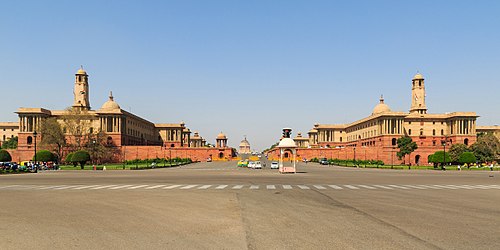
BILATERAL ISSUES
BAHRAIN
Third India-Bahrain High Joint Commission Meeting, New Delhi, 07 April 2021.
External Affairs Minister Dr. S. Jaishankar and Foreign Minister of Kingdom of Bahrain H.E. Dr. Abdullatif bin Rashid AlZayani co-chaired the 3rd India-Bahrain High Joint Commission (HJC) today in New Delhi. A Joint Statement has been issued on the 3rd HJC. Bahrain Foreign Minister also handed over a letter from HRH Crown Prince and Prime Minister of Bahrain addressed to Hon'ble Prime Minister to External Affairs Minister.
Bahrain Foreign Minister called on Hon'ble Vice President of India, Shri M. Venkaiah Naidu today. Hon'ble Vice President conveyed thanks on behalf of India to HM the King of Bahrain for taking excellent care of the Indian community including during the Covid-19 pandemic. Bahrain Foreign Minister appreciated the contribution of the Indian community to the progress and development of Bahrain and also thanked India for supplying Covishield vaccines to Bahrain.
During the HJC, both Ministers reviewed all areas of bilateral cooperation and expressed happiness at the progress made in past few years. They recalled the landmark visits of HM King of Bahrain to India in 2014 and of Hon'ble Prime Minister of India to Bahrain in 2019. Both sides continued their coordination and cooperation during the Covid pandemic.
Both sides agreed to further develop their cooperation in the areas of oil and gas, trade and investment, health, food security, defence, security, renewable energy, education, culture and digital technologies. Both sides also looked forward to celebrating golden jubilee of establishment of their diplomatic relations this year. External Affairs Minister reiterated the invitation to HRH the Crown Prince and Prime Minister of Bahrain for visiting India at an early date.
External Affairs Minister congratulated Bahrain on taking over as the Chair of GCC and looked forward to working with Bahrain to strengthen India-GCC partnership. Both Ministers also discussed regional and multilateral issues of mutual interest. India looks forward to early deposition of Instrument of Ratification of ISA Framework Agreement by Bahrain.
Bahrain Foreign Minister arrived in New Delhi on April 6 evening and is scheduled to depart on April 8 morning. Source: Ministry of External Affairs (MEA).
Joint Statement on Third India-Bahrain High Joint Commission Meeting (7 April 2021), New Delhi, 07 April 2021.
1. The Third meeting of the India-Bahrain High Joint Commission (HJC) was held in New Delhi on 7 April 2021. The meeting was co-chaired by H.E. Dr. S. Jaishankar, Minister of External Affairs of India and H.E. Dr. Abdullatif bin Rashid Al Zayani, Minister of Foreign Affairs of the Kingdom of Bahrain. The HJC was established pursuant to an MOU signed between the two sides during the State visit of H.M. King Hamad bin Isa Al Khalifa, King of Bahrain, to India on 18-20 February 2014. During the visit, the Bahraini dignitary called on Hon’ble Vice President of India, Shri Venkaiah Naidu on 7 April 2021.
2. The HJC meeting was preceded by a Senior Officials Meeting (SOM) on 31 March 2021 in virtual mode. The SOM was co-chaired by H.E. Mr. Sanjay Bhattacharyya, Secretary (Consular, Passport and Visa & Overseas Indian Affairs), Ministry of External Affairs of India and H.E. Dr. Shaikh Abdulla bin Ahmed Al Khalifa, Undersecretary for International Affairs, Ministry of Foreign Affairs, Kingdom of Bahrain.
3. H.E. Dr. S. Jaishankar welcomed Minister of Foreign Affairs of the Kingdom of Bahrain and the accompanying delegation to India. He thanked the Bahraini side for the warm reception extended to him during his first visit as External Affairs Minister of India to Bahrain in November 2020. H.E. Dr. Abdullatif bin Rashid Al Zayani expressed appreciation for the gracious hospitality extended to him and the accompanying delegation.
4. The historic visits of H.M. King of Bahrain to India in February 2014 and that of H.E. Prime Minister of India to Bahrain in August 2019 were recalled by both sides. They underlined that these visits had provided renewed energy and vigour to various facets of their bilateral relations. Both sides agreed to keep the momentum in high level bilateral visits. The Indian side reiterated the invitation to HRH the Crown Prince and Prime Minister for visiting India at an early date.
5. Both sides appreciated that the HJC at the level of Foreign Ministers reflects the depth and strength of ties between the two countries. They also expressed satisfaction at the regular high level exchanges between the two friendly countries which has led to further strengthening and diversifying of their bilateral cooperation.
6. The Indian side thanked the leadership and Government of Bahrain for safety, security and welfare of the Indian community, especially during Covid-19 pandemic. It also expressed appreciation to the Bahraini side for its facilitation of repatriation flights under Vande Bharat Mission (VBM) and for providing free Covid vaccination to all including Indian community in Bahrain.
7. The Bahraini side appreciated India for keeping open the supply chains to Bahrain of essential items including food and medicines during the Covid-19 pandemic. It particularly thanked India for gifting 100,000 doses of 'made in India' Covid vaccine to Bahrain.
8. Both sides highlighted the measures taken by their Governments in handling the Covid-19 and agreed to continue their collaboration in fighting the pandemic. They also highlighted steps taken by them for economic recovery and appreciated the need for closer economic and commercial cooperation between the two countries once the Covid-19 situation subsides. Both sides expressed satisfaction on working of the temporary Air Bubble arrangement between the two countries which is facilitating travel between both countries.
9. The two sides discussed ways and means to expand cooperation in a range of fields including oil and gas, infrastructure, investments, food processing, health, renewable energy, IT, data centres, cloud computing, space, tourism, education, culture, youth and sports.
10. The Bahraini side renewed its desire to strengthen cooperation in tax matters and to develop economic, commercial and investment opportunities between the two friendly countries.
11. While expressing satisfaction at the current bilateral trade and investment ties, both sides reaffirmed that there remains significant untapped potential. They noted the progress made by Mumtalakat, the sovereign wealth fund of Bahrain and the National Investment and Infrastructure Fund (NIIF) of India to promote Bahraini investment in India. The Indian side highlighted the economic reforms undertaken in India in the past few years and the opportunities for collaboration flowing from Aatmanirbhar Bharat.
12. Both sides stressed the importance of business and industry in taking forward the economic and commercial cooperation between the two countries. In this context, they looked forward to early convening of a B2B meeting of Federation of Indian Chamber of Commerce and Industry (FICCI) and Bahrain Chamber of Commerce and Industry (BCCI).
13. Recalling the MoU between National Payments Corporation of India (NPCI) and Bahrain’s Electronic Network for Financial Transactions (BENEFIT) for launch of RuPay card signed during the visit of Prime Minister of India to Bahrain in August 2019, both sides agreed to expedite negotiations for early launch of RuPay Card in Bahrain.
14. Both sides emphasized the importance of bilateral collaboration in the field of health and pharmaceuticals. Having signed an MOU on cooperation in the field of healthcare on July 15th, 2018, both sides have been in constant talks to seek the most suitable areas of collaboration and to further discuss areas of collaborations as stated in the MOU which includes, health services and medical care, health, medical and clinical research, social health insurance, pharmaceuticals and medical devices.
15. The Bahraini side expressed interest in setting up of pharmaceutical and vaccine production unit(s) in Bahrain with Indian collaboration. The Indian side welcomed Bahrain’s keen interest and agreed to facilitate dialogue between relevant stakeholders. The Indian side requested the Bahraini side for greater acceptance and market access for Indian pharmaceutical products in the Bahraini market. It also proposed that products related to traditional Indian health systems (AYUSH) may be given official recognition in Bahraini market.
16. Both sides emphasized on enhancing cooperation in the area of food security. The Indian side highlighted the significant opportunities for investments in food parks in India as also in increasing food exports from India to Bahrain.
17. Energy remains a principal area of cooperation between India and Bahrain. Both sides underlined that there are several areas of further cooperation between the two sides in both upstream and downstream sectors of oil and gas in Bahrain. This includes exploration, production and development. They agreed to take meaningful steps for further enhance energy cooperation between both countries. Both sides encouraged greater cooperation between the two countries in relations to trade remedies to achieve the public interest of both countries.
18. Both sides expressed happiness that the first meeting of the Joint Working Group (JWG) on Renewable Energy was held on 4 February 2021. They agreed to forging deeper engagement in capacity building and focused cooperation between concerned government agencies and private sectors of the two countries in the fields of solar and wind energy as well as clean hydrogen. The Indian side extended invitation to the Bahraini side for participation in its Hydrogen Roundtable scheduled to be held on 15 April 2021.
19. Both sides stressed the importance of holding early meetings of other existing bilateral mechanisms including Foreign Office Consultations (FOCs), JWG in the health sector, Joint Committee Meeting under the MoU on manpower & development and Joint Steering Committee (JSC) in the field of combating international terrorism. It was agreed that the fifth FOC should be held in New Delhi at a mutually convenient date to follow up on the decisions of the HJC.
20. Both sides looked forward to celebrating the Golden Jubilee of their diplomatic relations. In this regard, the two sides decided to hold a number of events including issuing a memorial postage stamp for the occasion, prominent display of the national flags, seminars and webinars, cultural events, exhibitions etc highlighting the deep-rooted civilizational ties and close friendly relations between the two countries. Both sides decided to increase the participation of their youth in these events.
21. Both sides recognized that the bilateral security dialogue has helped institutionalize cooperation in the area of intelligence sharing as well as in identifying new areas for security cooperation including cyber security. They agreed to further strengthen bilateral defence and security cooperation including through regular consultations in the areas of maritime security, combating piracy and counter-terrorism. Both sides reiterated condemnation of terrorism in all its forms and manifestations and called on all states to reject and abandon the use of terrorism against other countries.
22. Both sides appreciated the role of Indian community in Bahrain as an important link between the two countries and their vital contribution to the development of Bahrain. The Indian side commended the Kingdom’s liberal and tolerant policies and their welcoming society, which have made it a preferred destination for Indian professionals and workers.
23. Both sides also agreed to strengthen coordination on consular issues especially taking into consideration humanitarian cases that arise among the large Indian community in Bahrain. The Indian side proposed to continue bilateral consultations with regard the integration of India’s e-Migrate system with Bahrain’s Labour Market Regulatory Authority (LMRA) e-portal.
24. Recalling the MoU on Space Cooperation signed in March 2019 and a Statement of Intent for Space cooperation signed in August 2019, both sides welcomed the ongoing discussions for collaboration between NSIL (NewSpace India Limited) and National Space Science Agency (NSSA), Bahrain. This includes discussions on building and launching nano-satellite, establishing ground station and providing assistance in capacity building to Bahrain.
25. Both sides also agreed to develop cooperation in the areas of defence, trade & commerce, tourism, human trafficking, education, traditional medicine, environment etc.
26. Both sides recalled the Cultural Exchange Programme (CEP) signed by them for 2019-23 and agreed to expedite implementation of the CEP to further strengthen their historical cultural ties. Both sides also agreed to increasing cooperation in the education sector. The Indian side welcomed more Bahraini students in premier higher educational institutes in India.
27. The Indian side welcomed the signing of the Framework Agreement of the International Solar Alliance (ISA) by Bahrain and looked forward to its deposition of the Instrument of Ratification of the Framework Agreement of ISA with the Ministry of External Affairs, Government of India.
28. The Indian side congratulated Bahrain for taking over the GCC Presidency for 2021 and expressed hope that India’s strong ties with GCC countries in all sectors will be further strengthened during Bahrain’s Presidency. Both sides expressed satisfaction with the India-GCC Troika Meeting held at the level of Foreign Ministers in November 2020.
29. Both sides discussed key global developments and regional and multilateral issues of mutual interest. The two countries consider each other valuable partners in the region to achieve a more peaceful and inclusive global community. Both sides underlined the importance of securing peace and stability in Asia and the Middle East.
30. It was agreed that the fourth meeting of the High Joint Commission would be held in Bahrain, dates for which will be decided through the diplomatic channels. Source: Ministry of External Affairs (MEA).
India thanks Kingdom of Bahrain for its solidarity and support in the current Covid-19 Pandemic situation, Manama, 27 April 2021.
The Government of India would like to thank the Leadership and the Government of the Kingdom of Bahrain for the Kingdom’s solidarity and support to India in this difficult time of COVID-19 pandemic which has affected the entire world. The Government of India appreciates the decision of the Bahraini Cabinet and expresses gratitude to HM the King and HRH the Crown Prince and Prime Minister of Kingdom of Bahrain for affirming Kingdom’s support to India in dealing with COVID-19 pandemic and would like to thank for its kind gesture to send medical equipment and oxygen to India.
In line with our historical and close friendly ties, our two counties have had excellent collaboration in dealing with Covid-19 pandemic. India is committed to further strengthen our bilateral collaboration with the friendly Kingdom of Bahrain, not only in fighting this global pandemic, but also in diversifying and deepening all aspects of our bilateral cooperation. Source: Embassy of India, Manama.
JORDAN
PM congratulates His Majesty King Abdullah II and people of Hashemite Kingdom of Jordan on the occasion of the 100th anniversary of the founding of the state of Jordan, New Delhi, 13 April 2021.
Prime Minister Shri Narendra Modi congratulated His Majesty King Abdullah II and people of Hashemite Kingdom of Jordan on the occasion of the 100th anniversary of the founding of the state of Jordan through a video message.
In his video message, the Prime Minister expressed his heartiest congratulations and warm greetings to His Majesty King Abdullah II and the people of Jordan. Prime Minister Modi hailed the far-sighted leadership of His Majesty, under whom Jordan has achieved sustainable and inclusive growth, and remarkable developments in economic and socio-cultural fields. Highlighting the key role of His Majesty King Abdullah-II in the promotion of peace in West Asia, the Prime Minister noted that Jordan has today emerged as a powerful voice and global symbol of moderation in an important region of the world.
Noting the deepening of relations between India and Jordan, the Prime Minister fondly recalled the historic visit of His Majesty King Abdullah-II to India in 2018, during which His Majesty had reiterated the Amman message of 2004 of tolerance, unity, and respect for human dignity.
The Prime Minister noted that India and Jordan were united in the belief that moderation and peaceful co-existence were essential for peace and prosperity. He stressed that the two sides would continue to walk side by side in their joint efforts for a greater future for all humanity. Source: Ministry of External Affairs (MEA).
Prime Minister’s remarks on 100th anniversary of the Kingdom of Jordan, New Delhi, 13 April 2021.
I extend my heartiest congratulations on the occasion of the 100th anniversary of the Kingdom of Jordan.
My warm greetings to His Majesty King Abdullah and to the people of Jordan.
Jordan is a respected name in historical and religious heritage of the world.
Under the far-sighted leadership of His Majesty King Abdullah, Jordan has achieved sustainable and inclusive growth.
Its progress in economic, social and cultural development has been remarkable.
In an important region of the world, Jordan has emerged as a powerful voice and a global symbol of moderation and inclusivity.
It has emerged as a model State living in peace with its neighbours, and is a symbol of stability and a voice of reason.
His Majesty the King continues to play a key role in the promotion of peace in West Asia.
The Aqaba Process has contributed to promoting coordination on regional peace and security.
Similarly, the Amman Message of 2004 was a powerful call for tolerance, unity, and respect for human dignity.
The same message was reiterated in New Delhi in 2018 during the historic visit of His Majesty the King.
He graciously accepted my invitation to share his thoughts on ''The Role of Faith in the Future of the World'' at a gathering of religious scholars.
India and Jordan are united in the belief that moderation and peaceful co-existence are essential for peace and prosperity.
We will continue to walk side by side in our joint efforts for a better future for all humanity.
Once again, I extend my heartiest greetings to His Majesty and to the people of Jordan on this happy occasion.
Alf Mabrook, a thousand congratulations, and Shukran ,
Thank You. Source: Ministry of External Affairs (MEA).
QATAR
Qatar Airways to ship essential medical supplies to India, Doha, 21 April 2021.
India welcomes and deeply appreciates the announcement made by Qatar Airways for ship essential medical supplies gifted to India from around the world free of charge.
This gesture is testament to very close and longstanding partnership between India and Qatar. Prime Minister of India held a telephonic conversation with His Highness the Amir of the State of Qatar on 27 April and conveyed our appreciation for the expression of solidarity and support for India’s fight against Covid.
We are grateful to our international partners for their standing in support of the people of India. This also reflects the goodwill of the world for India’s own efforts to step in when its international partners are in need. Source: Embassy of India, Doha.
Visit of Indian Navy’s Western Fleet Ship INS Tarkash to Qatar, Doha, 22 April 2021.
In the framework of the excellent relations and multi-faceted and growing cooperation between India and the State of Qatar, Indian Navy’s Western Fleet Ship, INS Tarkash arrived in Qatar today 22nd April 2021.
Indian Naval Ship Tarkash, the second ship of the Teg Class stealth frigates, was commissioned into the Indian Navy on 9th November 2012. The ship is commanded by Captain Happy Mohan, forms part of the Western Naval Command. With an overall length of 125 m, width of 15.5 m and a standard displacement of over 3300 tons, the ship is capable of speeds in excess of 31 knots.
The Embassy deeply appreciates the support of the Government of Qatar and Qatar Emiri Navy in arranging the visit of Indian Naval ships.
India has an ancient maritime tradition and maritime interaction with the Gulf and Qatar in particular. The Indian Navy has multi-dimensional capability comprising aircraft carriers, modern ships, submarines, aircraft and marine commandos. A notable feature of the Indian Navy’s force structure is the fact that the overwhelming majority of its ships are designed and constructed in India.
The Indian Navy has close and friendly ties with all navies in the Gulf. The Indian Naval ships have been involved in combating piracy off the coast of Somalia since October, 2008 and also supporting safety and security of maritime trade in the Gulf region under operation Sankalp since 2019.
The growing naval cooperation between India and Qatar is demonstrated by the high-level visits, training of naval officers, port visits by naval ships and Joint Exercises. The visit of INS Tarkash would further strengthen the deep-rooted bonds of friendship between India and Qatar, and defence cooperation between the two countries. Source: Embassy of India, Doha.
PM’s telephonic conversation with Amir of Qatar, New Delhi, 27 April 2021
The Prime Minister, Shri Narendra Modi had a conversation with His Highness Tamim bin Hamad Al Thani, Amir of the State of Qatar.
In a tweet, Shri Modi said:
“Had a good conversation with His Highness @TamimBinHamad, Amir of Qatar today. I thanked His Highness for the solidarity and offer of support in India's fight against COVID-19. I also conveyed our gratitude for the care being provided to the Indian community in Qatar.” Source: Press Information Bureau (PIB).
TUNISIA
Fourth Round of Foreign Office Consultations between India and Tunisia, New Delhi, 30 April 2021.
The 4th round of the India-Tunisia Foreign Office Consultations was held on 30th April 2021 in a virtual mode. The Indian delegation was led by Sanjay Bhattacharyya (Secretary CPV&OIA) while the Tunisian delegation was led by Secretary of State Mr. Mohamed Ali Nafti. Senior officials from both sides, including both Ambassadors participated in the meeting.
Both sides noted the warm and friendly traditional relations, and comprehensively reviewed the current status of bilateral relations in all fields including political, economic, cultural, trade and consular. Detailed discussions were held on further strengthening of the bilateral relations and the future direction of the growth of bilateral cooperation. The Tunisian side expressed their happiness and support for the celebration of 75 years of Indian Independence that will be celebrated in 2021-2022. The Indian side welcomed the decision of Tunisia to join the International Solar Alliance.
Both sides noted the importance of expanding economic and technology engagement. They called for sustained expansion of trade volume. They noted opportunities for investment, particularly in the fields of renewable energy, infrastructure, transport and automobiles, textiles, agriculture, drugs & pharmaceuticals, healthcare, ICT, SMEs and energy. They urged business community to engage closely for mutual benefit.
Both sides discussed measures to mitigate the impact of Covid-19 pandemic and noted with appreciation the cooperation on COVID-19 related issues.
As members of UNSC, they also exchanged views on regional and international issues of mutual interest underscoring the commonality of views between the two sides on global issues.
Both sides agreed on the importance of continuing the upward momentum in the relationship through exchange of regular visits and consultations, and agreed to hold the next Joint Commission meeting at Ministerial level in New Delhi at a mutually convenient date. Source: Ministry of External Affairs (MEA).
PERMANENT MISSION OF INDIA TO THE UNITED NATIONS
UNSC Briefing on Middle East (Syria Chemical Weapons), India Statement by Mr. R. Ravindra, Deputy Permanent Representative - Political Coordinator, New York, 06 April 2021.
Thank you Mr. President,
I would like to thank Under Secretary General and High Representative for Disarmament Affairs Izumi Nakamitsu for her briefing.
2. We have taken note of the update on the 24th round of consultations between the Declaration Assessment Team (DAT) and the Syrian National Authority that took place from 7 to 25 February 2021. The DAT has conducted technical meetings with representatives of the Syrian National Authority, visited three declared sites - one Chemical Weapons Production Facility [CWPF] and two chemical weapons storage facilities, and held two interviews on an outstanding issue. The Secretariat has also received additional explanations from the Syrian Arab Republic on results of samples collected during the 23rd round of DAT consultations. We take note of the cooperation displayed by the Syrian authorities in all these developments.
3. India recognizes the efforts of the OPCW Technical Secretariat in the Declaration Assessment Team and the Fact-Finding Mission. We will await further updates on these mechanisms, including the inspections of the facilities of the Syrian Scientific Studies and Research Centre (SSRC), which were conducted between 8 and 13 November 2020.
4. We hope that the ongoing engagement and cooperation between Syria and the OPCW Technical Secretariat will progress further in the coming months towards an early resolution of all outstanding issues. In this regard, we welcome the in-principle agreement at the beginning of this year for a further six-month extension of the Tripartite Agreement between Government of Syria, OPCW and UNOPS (UN Office of Project Services) to facilitate the mandated activities in Syria. We hope this extension agreement will be signed soon.
5. India has consistently underlined the need for an impartial and objective investigation into any alleged use of chemical weapons, diligently following the provisions and procedures laid down in the Chemical Weapons Convention. Any concerns or disagreement should be addressed on the basis of consultations and cooperation among all concerned parties and the Technical Secretariat of the OPCW. There is a need for an objective analysis among Council members of what has been achieved since the adoption of resolution 2118 (2013), following the accession of the Syrian Arab Republic to the Chemical Weapons Convention.
6. India attaches high importance to the Chemical Weapons Convention (CWC), which is a unique, non-discriminatory disarmament instrument and serves as a model for the elimination of an entire category of weapons of mass destruction. India has provided a financial contribution of US$ one million to the OPCW Trust Fund for activities relating to destruction of chemical stockpiles and related facilities in Syria.
7. India remains concerned about the possibility of weapons of mass destruction falling into the hands of terrorist entities and individuals. It is deeply concerning that the involvement of external actors in Syria has given a fillip to the growth of terrorism in Syria and in the region. We are concerned at the frequent reports of the resurgence of groups like ISIS in the region. We cannot afford to dilute the fight against these terrorist groups.
Mr. President,
8. India has consistently called for a comprehensive and peaceful resolution of the Syrian conflict through a Syrian-led dialogue, taking into account the legitimate aspirations of the people of Syria, facilitated by the UN in line with Security Council resolution 2254. We have contributed to the return of normalcy and rebuilding of Syria through humanitarian assistance and human resource development.
9. Let me conclude by reiterating our support to both the Geneva and the Astana processes for finding an expeditious resolution to the decade long conflict in Syria.
I thank you, Mr. President. Source: Permanent Mission of India to the UN
Security Council Monthly Meeting on Yemen, India Statement by Ambassador T.S. Tirumurti, Permanent Representative of India to the United Nations, New York, 15 April 2021.
Thank you, Mr. President. I welcome Special Envoy Martin Griffiths and Under-Secretary General Mark Lowcock and thank them for their briefings on the current situation in Yemen. I welcome the presence of the PR of Yemen Ambassador Abdullah Ali Fadhel Al-Saadi.
2. As a country with centuries-old relationship with Yemen and strong people-people ties, India is concerned by the instability, violence and suffering in Yemen. We are also deeply concerned about the humanitarian consequences of the ongoing military escalation in Marib. The fighting has put the large population of Marib including more than a million internally displaced people at grave risk. We hope that the ongoing diplomatic efforts result in the fighting ending soon.
3. Reports about the growing presence of Al-Qaeda in Marib and its attacks in southern Yemen are also a cause for grave concern. We have repeatedly stated that the instability in Yemen will be exploited by terrorist groups to expand their presence in the country. While focusing on the political and military conflict, the Council must not overlook the threats posed by terrorist groups to peace and stability in the country and the region.
4. The protracted conflict and deteriorating economic situation have only exacerbated the suffering of Yemeni people. The humanitarian situation is dire. The famine-like condition in many governorates is expected to worsen the humanitarian crisis in the coming months. The full support of the international community is required to prevent a famine in the country.
5. I would like to highlight two important issues in this regard. First, aid agencies must receive adequate funding to continue their aid programmes. They would, otherwise, be forced to scale down or end the aid, which would impact the people of Yemen. Second, humanitarian and commercial supplies cannot be linked with other issues. Restrictions which hamper the flow of essential commodities into Yemen and all impediments to internal movement of humanitarian aid must be removed. We welcome the clearances issued by Government of Yemen recently to fuel ships to enter into Hudaydah to ease the pressure on access to and availability of fuel in Yemen.
6. We are glad that vaccines from India reached Yemen on 31 March and would contribute to the fight against the COVID-19 pandemic. The fight will however not be effective until testing capacities are enhanced and complete information about the number of COVID-positive cases, especially in northern Yemen, are made available in a transparent manner.
7. Another issue that is of concern is the SAFER oil tanker. If not addressed, the deteriorating condition of the SAFER tanker can result in an ecological and maritime catastrophe. We hope that all pending issues will be resolved urgently and that Ansarallah will provide early access and facilitation to the UN to inspect the vessel and conduct any essential repairs without further delay.
Mr. President,
8. The only way to end the crisis in Yemen is through lasting and inclusive peace. The recent diplomatic initiatives have opened a new window of opportunity. We commend the efforts by Oman in facilitating dialogue between the key stakeholders towards finding a comprehensive solution to the conflict in Yemen. We also welcome the initiative announced by Saudi Arabia for fostering peace in Yemen.
9. India supports all efforts to find an inclusive and peaceful political solution to the Yemen crisis through negotiations led and owned by the Yemeni people. Full and equal participation of women and youth in these negotiations is important. We call for an immediate halt to the offensive in Marib and military operations in other parts of Yemen to create a conducive environment for these negotiations. We appreciate the efforts of General Abhijit Guha and the UNMHA team to prevent escalation of hostilities in Hudaydah. We hope that all parties in Yemen will engage in good faith with the UN Special Envoy and come to the negotiating table immediately to end the conflict.
10. Let me conclude by reaffirming India’s strong commitment to Yemen’s unity, sovereignty, independence and territorial integrity. We hope to see enduring peace return to Yemen soon.
I thank you Mr. President. Source: Permanent Mission of India to the UN
UNSC VTC Open debate, Situation in the Middle East, including the Palestinian Question, Statement by Ambassador T.S. Tirumurti, Permanent Representative of India to the United Nations, New York, 22 April 2021.
Thank you, Mr. President. I welcome the UN Special Coordinator Tor Wennesland and Director of OCHA’s Coordination Division Rein Paulsen to this meeting and thank them for their briefing.
2. We are pleased to note the positive progress in the holding of Palestinian legislative elections scheduled for May 22. We also take note of the Special Coordinator’s observations on the impediments to these elections. As a democracy and as a long-standing friend, India has always supported a fair, credible, transparent and inclusive electoral process in Palestine, including by participating in electoral observation and providing election-related training to the Palestinian Central Elections Commission. India will continue to remain supportive of this process.
3. India’s position on the Israel-Palestine conflict is well-known. A negotiated two-state solution achieved through direct and meaningful negotiations is the only viable solution to the conflict. Such a solution should fulfil Palestinian aspirations for statehood and sovereignty, meet Israel’s security needs, and resolve all final status issues.
4. As we reiterated earlier, Resolution 2334 adopted by the Security Council calls for advancing this two-state solution through negotiations as well as to reverse negative trends on the ground. This will create conditions for launching credible negotiations on all final status issues. We urge both parties to refrain from unilateral measures that vitiate conditions necessary for promoting peace and instead focus on bridging the trust deficit.
5. The international community should also encourage resumption of direct negotiations between the parties. India supports all efforts by the international community that seek to achieve durable peace for both Israelis and Palestinians. We acknowledge the important role of the Middle East Quartet in this regard.
Mr. President,
6. We remain concerned about the current COVID-19 situation in Palestine. The recent spike in the overall cases is once again threatening local health systems and disrupting economic and humanitarian activities, especially in Gaza. We commend the steps taken by the Palestinian Authority in addressing the current crisis. We welcome the efforts of the UN and its agencies to support the Palestinian Authority in their response to the COVID-19 pandemic in the Palestinian territories.
7. COVID-19 is a common threat which knows no boundaries and endangers the lives of Israelis and Palestinians alike. We welcome the cooperation between the Israeli and Palestinian authorities to mitigate the effects of the pandemic and encourage the continuation of such efforts, including through smooth movement of vaccines, medical supplies and equipment, in particular to the population in Gaza. We are pleased that the first shipment consisting of 25,000 Indian vaccines reached Palestine on March 29.
8. We also appreciate the work of UNRWA to mitigate the negative impacts of the pandemic on the Palestine refugee community in its areas of operation despite the severe challenges posed by the pandemic. In particular, the Agency’s relief interventions have played an important role in addressing the growing poverty among Palestinian refugees during the current pandemic. India is committed to contribute US$ 10 million to UNRWA for the biennium 2021-2022.
Mr. President,
9. Before concluding, let me once again reiterate India’s unwavering commitment to finding a just solution to the cause of Palestine and to its friendship with the Palestinian people. We have always focused on the importance of improving the overall quality of life in Palestine through our development assistance projects and capacity building programs for the Palestinian youth. Even amidst the pandemic, we have signed MoUs with authorities in Palestine for implementing quick impact projects, which will benefit local communities. I reaffirm India’s continued support towards Palestine and its people.
Thank you very much. Source: Permanent Mission of India to the UN.
UNSC briefing/consultations on Syria [Political/Humanitarian], Remarks by Ambassador T.S. Tirumurti, Permanent Representative of India to the United Nations, New York, 28 April 2021.
Let me begin by thanking Special Envoy Geir O. Pedersen and USG Mark Lowcock for their comprehensive briefings today.
2. The political track has not seen any major development since our last discussions. The Special Envoy has continued engagement with all important stakeholders to push for an early convening of the sixth meeting of the drafting body of the Syrian constitutional committee. The outcome of this meeting will be crucial for the credibility of the political process. It is therefore important that all three groups have a clear understanding on the procedure and the topics. In this regard, we welcome the proposals of the Special Envoy. We hope that all three sides will cooperate with the Special Envoy to agree to the modalities of the next meeting. An agreement on the procedure to be followed in the meeting is necessary.
3. As we have said before, the Syrian conflict is both deeply politicized and internationalized. We have major foreign powers involved with stakes in the conflict. We also have several independent parallel political tracks. We welcome these parallel initiatives, while underscoring the centrality of the UN led political process. The parallel tracks must feed into the UN led political process. In this regard, we support the engagement of Special Envoy with all stakeholders.
4. For the UN led political track to move forward, we need cooperation among all major stakeholders to the conflict. Constructive international diplomacy is the need of the hour to bridge existing divides by focusing on mutual and reciprocal steps. This has become difficult to achieve in the current context, since there does not seem to be any degree of understanding among the major stakeholders. We would like to underline again that there cannot be externally imposed solutions to the conflict. The polarization has only hardened the resolve of all sides, which seem to be acting at cross purposes. We believe there has to be unity of purpose focusing on helping the people of Syria. If we are serious about achieving progress, we need to have greater convergence of views and act to strengthen the hands of the Special Envoy. If we don’t act now to save the UN led political process, this process may become marginalised.
5. The Syrian conflict and the division between the stakeholders has been taken advantage of by terrorists and this has contributed to the rise of terrorism in Syria and in its neighbouring countries. The latest report of the Secretary General dwells on the threat posed by ISIL. We express our serious concern over increased terrorist activity on the Syrian soil. Further, it is a matter of deep concern for all that the mercenaries are finding their way into other conflict zones, including in Africa. This needs to be addressed with a high degree of seriousness. It is imperative that all parties adhere to their international obligations to fight terrorism and terrorist organizations in Syria, as designated by the Security Council.
6. India firmly believes that long-term security and stability in this region can only be achieved by preserving the sovereignty and territorial integrity of Syria. We also remain convinced that there can be no military solution to the Syrian conflict and reaffirm our commitment to advancing a Syrian-led and Syrian-owned UN-facilitated political process in line with UN Security Council Resolution 2254.
7. Today’s briefing has again highlighted the dire humanitarian situation in Syria. The decade-long conflict has had a devastating effect on the people of Syria. We are deeply concerned at the alarming statistics provided at the OCHA briefing last week. An estimated half-million people have died, millions have been displaced, both internally and externally, the health infrastructure has collapsed, and children have been deprived of basic education. Women, children and youth have especially been deeply impacted. The Covid-19 pandemic has further aggravated the humanitarian situation. The economic crisis in Syria has pushed its people to the brink of a disaster. We hope that the announcements made at the Brussels V Donors Conference last month will bring some respite to the affected population.
8. Let me reiterate again, there is an urgent need to increase humanitarian assistance to all Syrians throughout the country without discrimination or politicization or any preconditions.
9. What we need immediately is an active engagement that is both consistent with Syrian independence, territorial integrity and sovereignty as well as addresses the urgency of the humanitarian issues to alleviate the suffering of the Syrian people. There is also an urgent need for concrete steps to address hurdles that are obstructing the functioning of both cross-border and cross-line operations, in particular, the delays in granting requisite approvals to humanitarian aid convoys. We need both sides to make this happen.
10. As we have mentioned in our earlier statements on Syria, India has extended developmental assistance and human resource development support to Syria regularly. These include lines of credits for developmental projects, supply of medicine and food, artificial limb fitment camps and capacity building training programs for Syrian nationals. Recently, Syria also received a consignment of India’s COVID-19 vaccines. We reiterate our steadfast commitment to continue these initiatives, in support of the people of Syria. I thank you. Source: Permanent Mission of India to the UN.
As part of the policy, the MEI@ND standardizes spellings and date format to make the text uniformly accessible and stylistically consistent. The views expressed here are those of the author and do not necessarily reflect the views/positions of the MEI@ND. Editor, MEI@ND P R Kumaraswamy
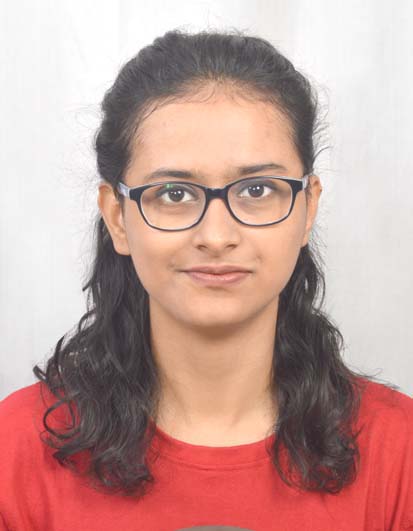
Ankita Sanyal is a doctoral candidate at Centre for West Asian Studies, Jawaharlal Nehru University, New Delhi. She worked as a summer intern at National Human Rights Commission, New Delhi in 2014 and participated in Global Initiative for Academic Networks, lecture on “Jerusalem and Abrahamic Faiths throughout the Ages” (November 2016); ICSSR-sponsored workshop on “Research Methodology Workshop in Social Sciences” (February 2019); and workshop on “Second Intensive Course on Women’s Studies in Islam and Iran” at the University of Religions and Denominations, Qom, Iran (August 2019). She currently has many publications and has presented papers in national and international conferences. She received certificate on completion of Level Two Persian Language course. Her area of interest includes minority studies, gender studies, cultural studies, education, peace and conflict studies.
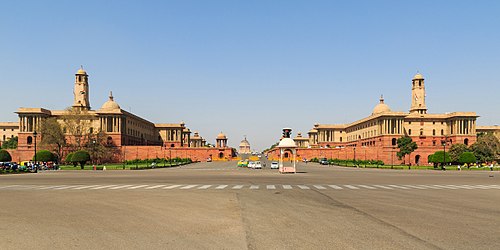
BILATERAL ISSUES BAHRAIN The CEO of LMRA highlights details on the new labour market reforms, .....
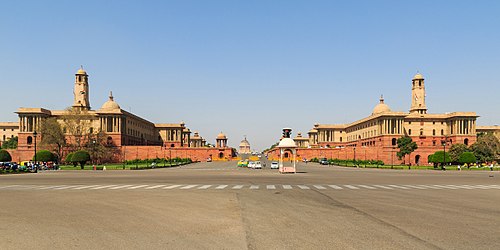
BILATERAL ISSUES EGYPT Raksha Mantri Shri Rajnath Singh to visit Egypt from September 19-20, 2.....
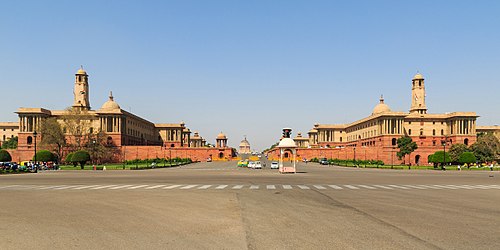
BILATERAL ISSUES IRAN Shri Sarbananda Sonowal visits Chabahar Port in Iran to Review work prog.....
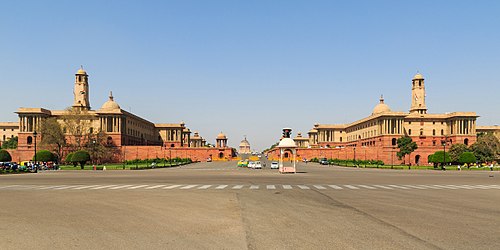
BILATERAL ISSUES BAHRAIN Deputy Chief of Naval Staff, India visits Kingdom of Bahrain, Manama,.....
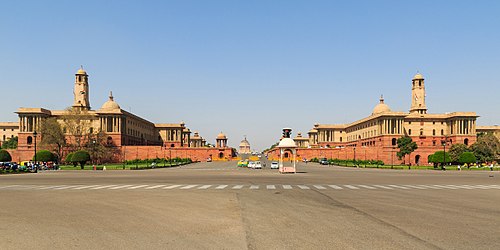
BILATERAL ISSUES BAHRAIN Buyer Seller Meet on Indian coffee between Indian exporters and Bahra.....
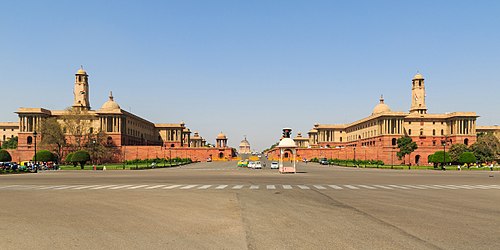
BILATERAL ISSUES BAHRAIN B2B meeting and Networking event between Bahraini & Indian IT com.....
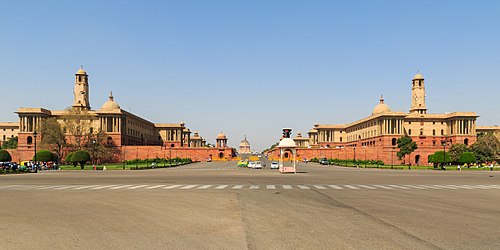
BILATERAL ISSUES OMAN Community Service Fortnight / Sewa Utsav’: ‘Celebration Thro.....
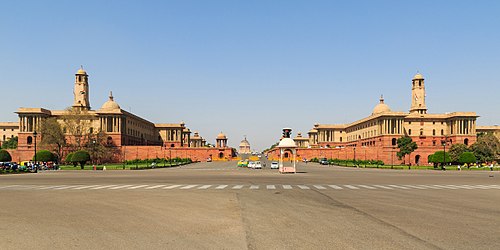
BILATERAL ISSUES BAHRAIN Virtual Buyer Seller Meet on agriculture and food products between In.....
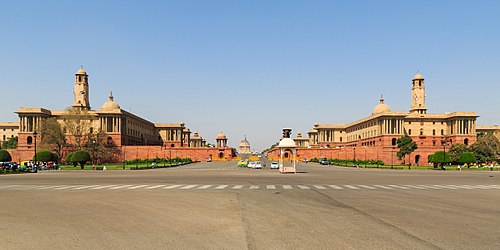
BILATERAL ISSUES BAHRAIN PM speaks on telephone with His Royal Highness Prince Salman bin Hama.....
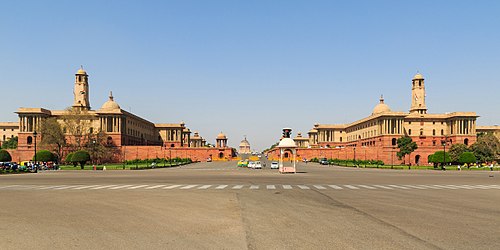
BILATERAL ISSUES ISRAEL Experts from India and Israel suggested expanding scope of India-Israe.....
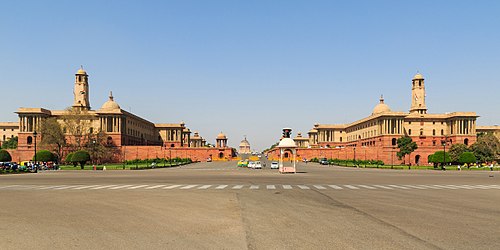
BILATERAL ISSUES BAHRAIN Press Release on virtual meeting between Minister for Education and S.....
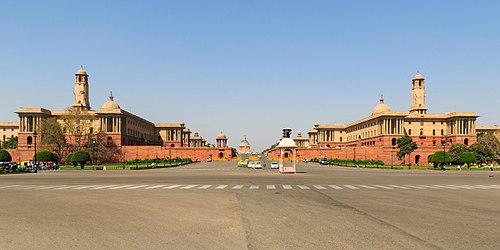
BILATERAL ISSUES BAHRAIN Ambassador’s visit to India Pavilion of Jewellery Arabia, Bahra.....
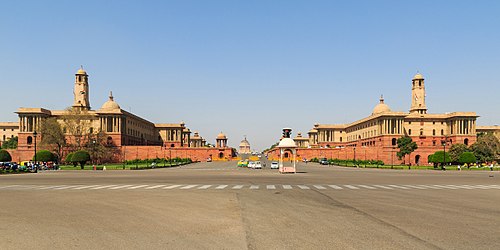
BILATERAL ISSUES BAHRAIN First consignment of GI tagged sweet dish Mihidana from West Bengal e.....
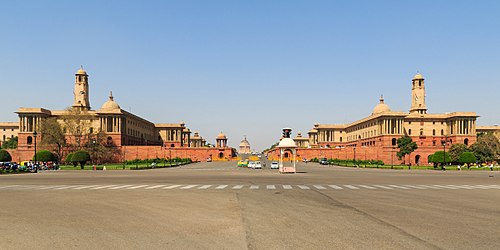
BILATERAL ISSUES ALGERIA Visit of Shri V. Muraleedharan, Minister of State for External Affair.....
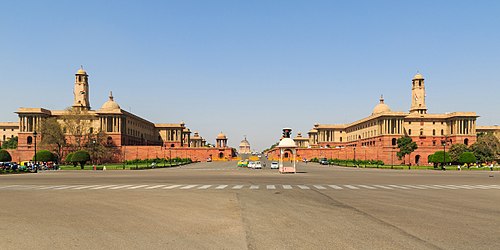
BILATERAL ISSUES ALGERIA INS TABAR undertook a bilateral Passage Exercise (PASSEX) with Algeri.....
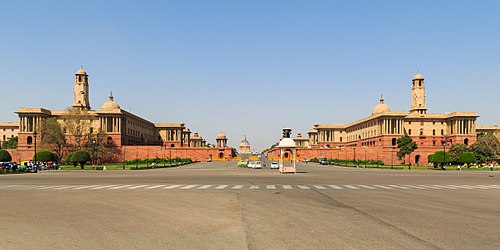
BILATERAL ISSUES BAHRAIN India expands mango export footprint to newer countries; GI certified.....
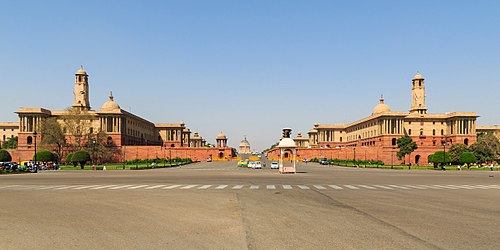
BILATERAL ISSUES ALGERIA APEDA in collaboration with Indian embassy organize virtual buyer sel.....
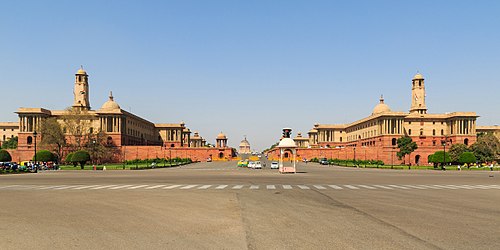
BILATERAL ISSUES EGYPT Procurement of 300,000 doses of Remdesivir from M/s EVA Pharma, Cairo, .....
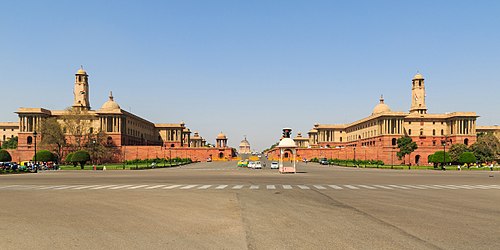
BILATERAL ISSUES BAHRAIN Indian Naval Ship Talwar’s Port Visit to Bahrain, Manama, 18 Ma.....
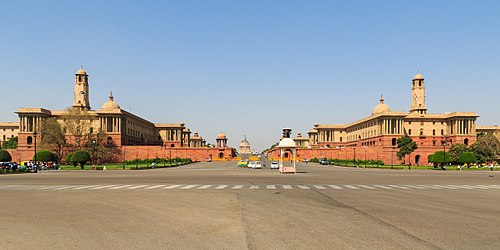
BILATERAL ISSUES IRAN Unstarred Question No.1475, Chabahar-Zaheden Railways Line, Lok Sabha, 1.....
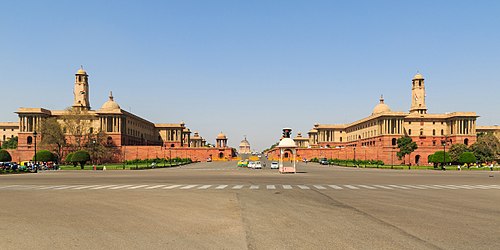
BILATERAL ISSUES IRAN Government of India strengthens cargo handling capacity of Chabahar Port.....
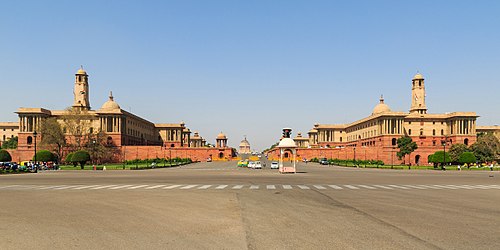
BILATERAL ISSUES BAHRAIN Warm greetings from Indian leadership on the occasion of Bahrain&rsqu.....
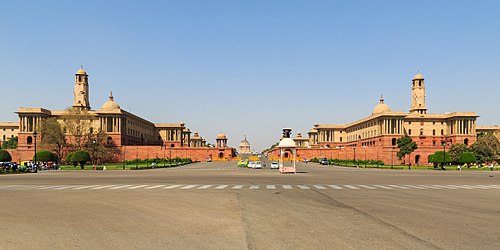
BILATERAL ISSUES BAHRAIN Prime Minister condoles the passing away of His Royal Highness Prince.....
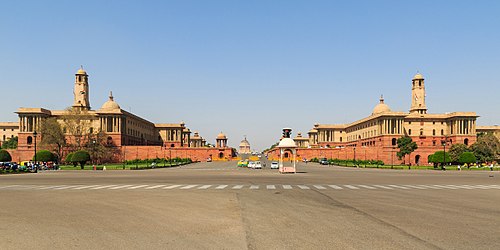
BILATERAL ISSUES BAHRAIN A B2B Webinar on Enhancing Opportunities in Pharmaceuticals and Alter.....
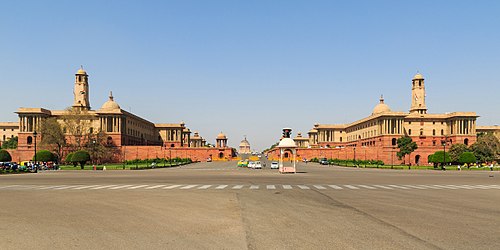
BILATERAL ISSUES IRAN Raksha Mantri Shri Rajnath Singh holds meeting with Iran's Minister .....
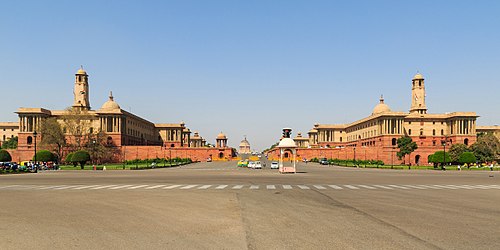
BILATERAL ISSUES ISRAEL Statement by the Official Spokesperson on the full normalisation of re.....
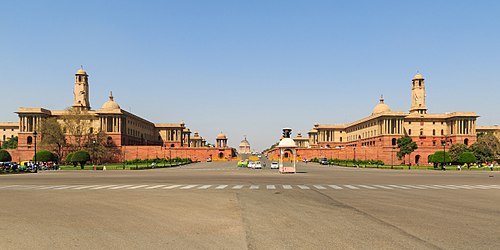
BILATERAL ISSUES ISRAEL Raksha Mantri Shri Rajnath Singh and Israeli Defence Minister telephon.....
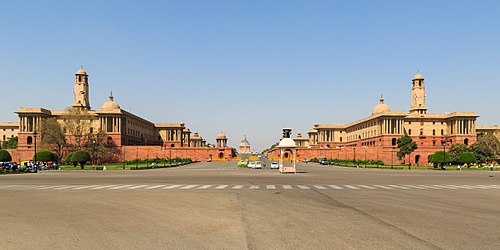
BILATERAL ISSUES IRAN Indian Navy Commences evacuation of citizens from Islamic Republic of Ir.....
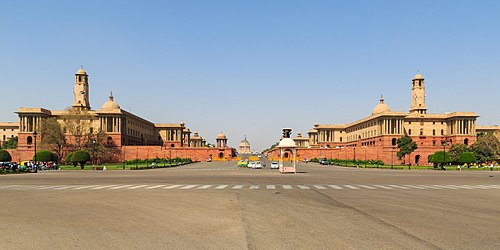
BILATERAL ISSUES EGYPT Phone call between Prime Minister Shri Narendra Modi and His Excellency.....
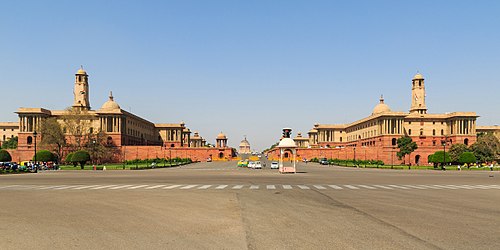
BILATERAL ISSUES BAHRAIN Telephone Conversation between PM and King of the Kingdom of Bahrain,.....
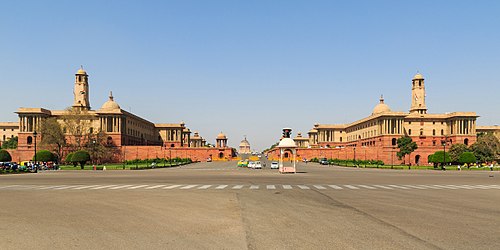
BILATERAL ISSUES IRAN IAF C-17 ‘Globemaster’ takes off for Iran, New Delhi, 9 Marc.....
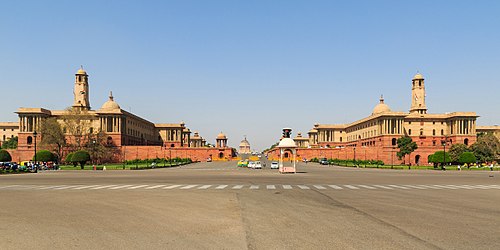
BILATERAL ISSUES IRAQ Travel Advisory for Indian Nationals travelling to Iraq, New Delhi, 19 F.....
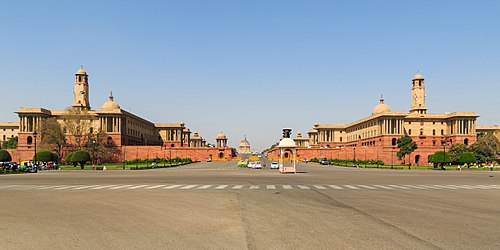
BILATERAL ISSUES EGYPT Photo exhibition on “Making of Indian Constitution and Life of Dr.....
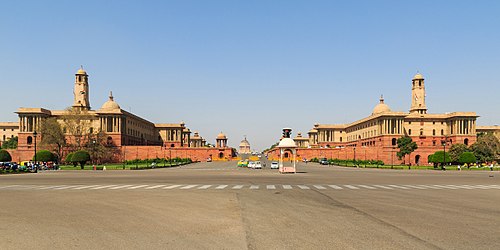
BILATERAL ISSUES EGYPT Prize Distribution Function of “Glimpses of India” Painting.....
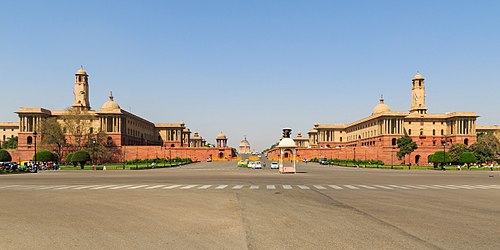
BILATERAL ISSUES EGYPT Consular Camp in Port Said on 22 November 2019, Cairo, 19 November 2019.....
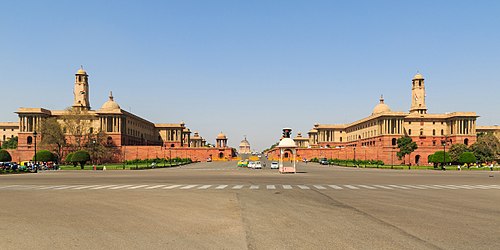
BILATERAL ISSUES JORDAN Meeting between Prime Minister and King of Jordan in Riyadh, Riyadh, 2.....
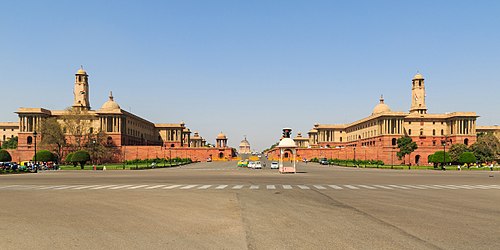
BILATERAL ISSUES a. IRAN Foreign Office Consultations between India and Iran, Tehran, 16 Septe.....
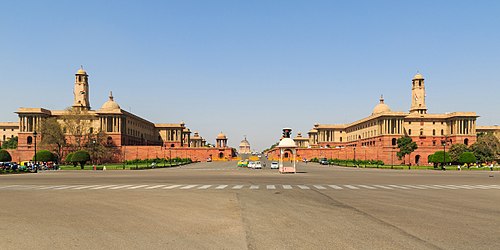
BILATERAL ISSUES a. BAHRAIN State Visits of Prime Minister to Bahrain (August 24-25, 2019), Ne.....
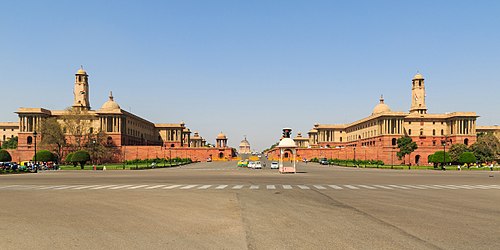
BILATERAL ISSUES BAHRAIN Cabinet approves Memorandum of Understanding between India and B.....
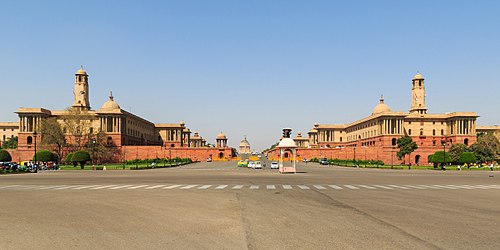
BILATERAL ISSUES IRAN UNSTARRED QUESTION No. 662 MPACT OF AMERICAN BAN ON CHABAHAR PORT, Rajya.....
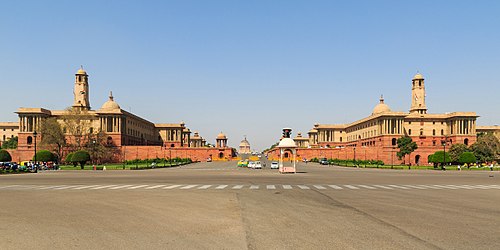
BILATERAL ISSUES IRAN 11th India Iran Joint Consular Committee Meeting (JCCM), New Delhi, 16 M.....
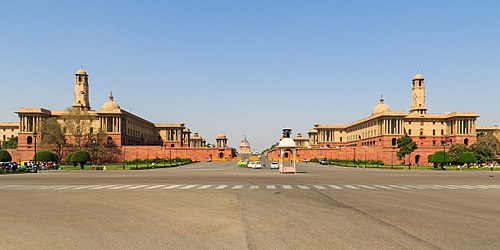
IRAN India extends relief assistance to Iran after recent floods, Tehran, 17 April 2019 In lin.....
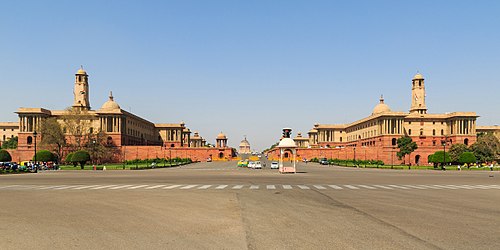
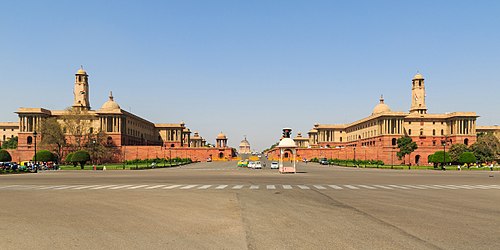
BILATERAL ISSUES EGYPT India condemns terrorist attacks in Egypt, New Delhi, 22 February 2019 .....
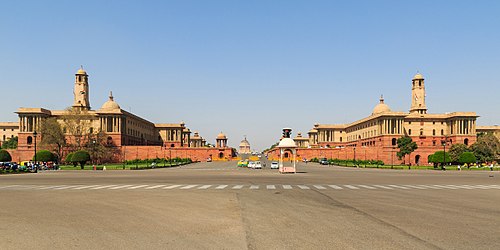
BILATERAL ISSUES ALGERIA Visit of Foreign Minister of Algeria to India (January 30-February 01.....
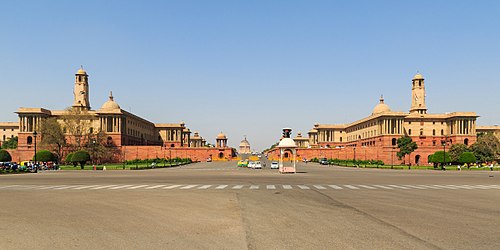
ALGERIA Cabinet approves Agreement between India and Algeria on Cooperation in the field of Space.....
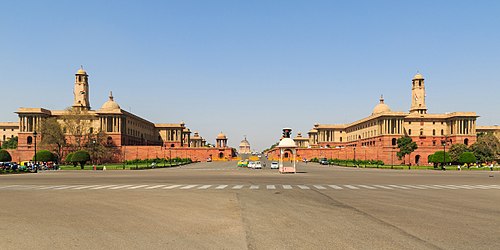
BILATERAL ISSUES IRAQ Jaipur Foot Camp in Karbala, Karbala, 21 November 2018 A 40-day Artif.....
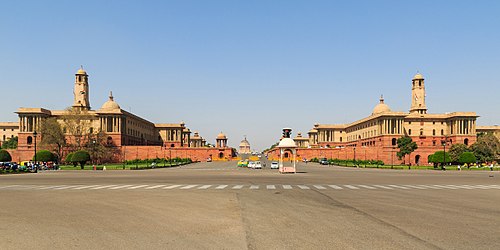
BILATERAL ISSUES KUWAIT Visit of External Affairs Minister to State of Qatar and State of Kuwa.....
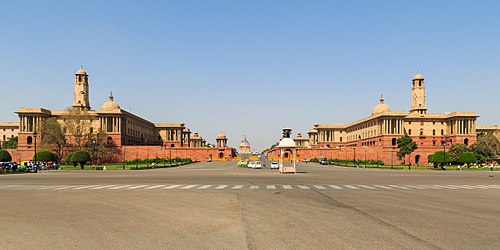
BILATERAL ISSUES EGYPT Cabinet approves MoU between India and Egypt on cooperation in the fiel.....
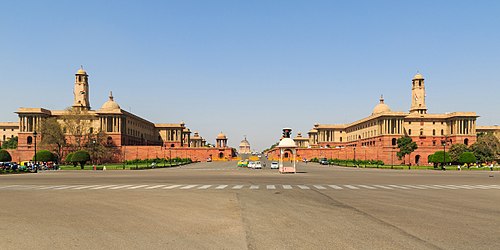
BILATERAL ISSUES BAHRAIN Question No. 3566, Unpaid Workers in Bahrain, Lok Sabha, New Delhi, 0.....
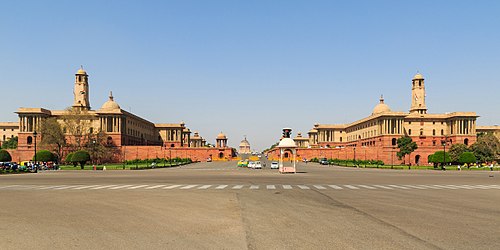
BILATERAL ISSUES BAHRAIN Visit of External Affairs Minister to Manama, Bahrain (July 14-15, 20.....
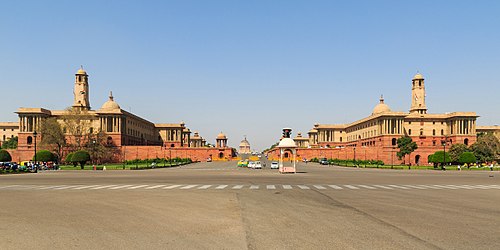
BILATERAL ISSUES BAHRAIN Cabinet approves MoU between India and Bahrain on cooperation in the .....
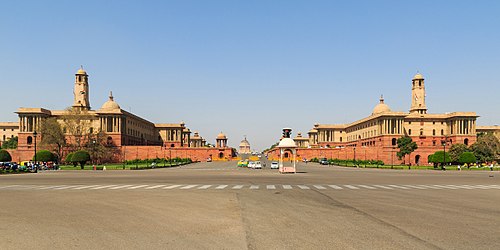
BILATERAL ISSUES IRAN External Affairs Minister’s meeting with Iranian Foreign Minister,.....
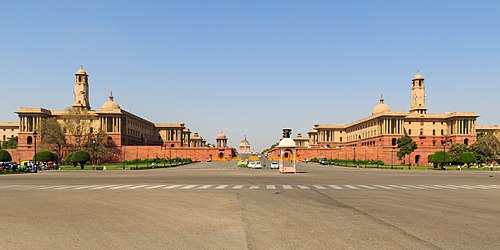
BILATERAL ISSUES IRAN Cabinet approves MoU between India and Iran on the establishment of an e.....
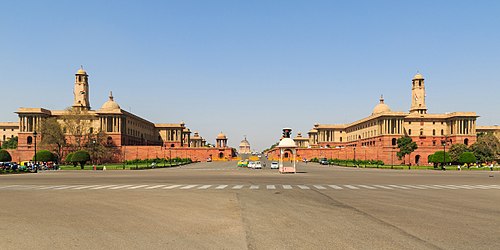
(Monthly Digest of Official Indian Statements on Middle East) BILATERAL ISSUES EGYPT Mr. Sa.....
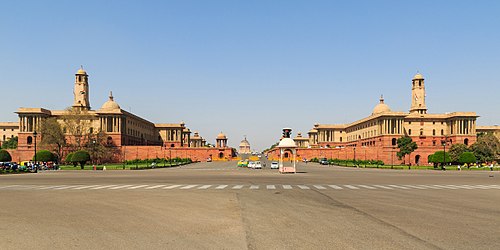
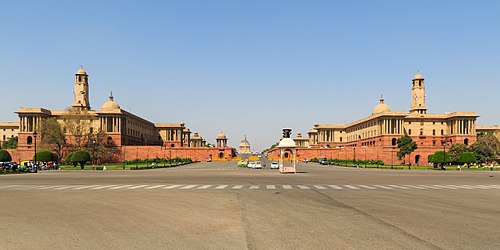
(Monthly Digest of Official Indian Statements on Middle East) BILATERAL ISSUES IRAN Launch .....
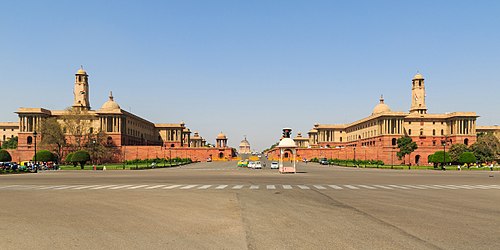
(Monthly Digest of Official Indian Statements on Middle East) BILATERAL ISSUES &.....
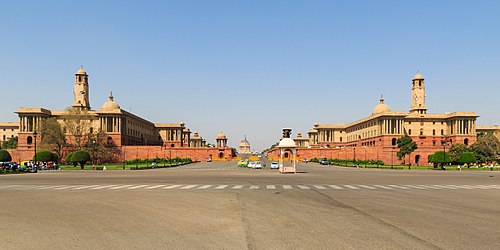
BILATERAL ISSUES a. EGYPT 1. H.E. Col. Rajyavardhan Singh Rathore, Minister of State for Youth.....
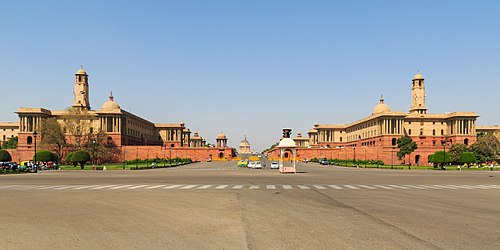
BILATERAL ISSUES a. IRAQ 1. India’s position on the Referendum held in the Kurdistan Reg.....
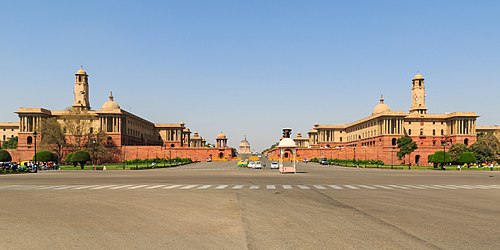
BILATERAL ISSUES IRAN 1. 6th Meeting of Joint Committee on Ports and Maritime Cooperation.....
